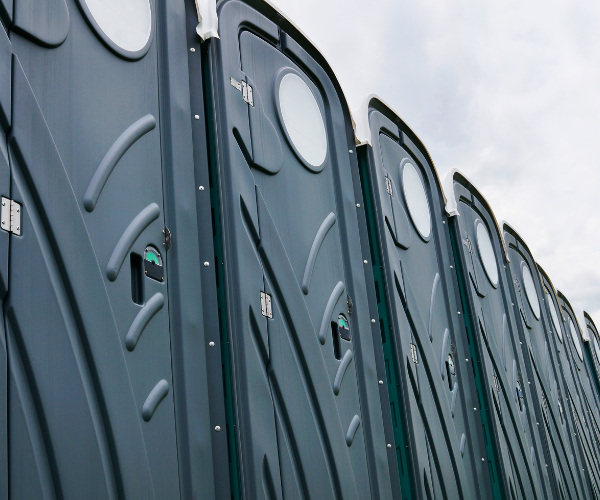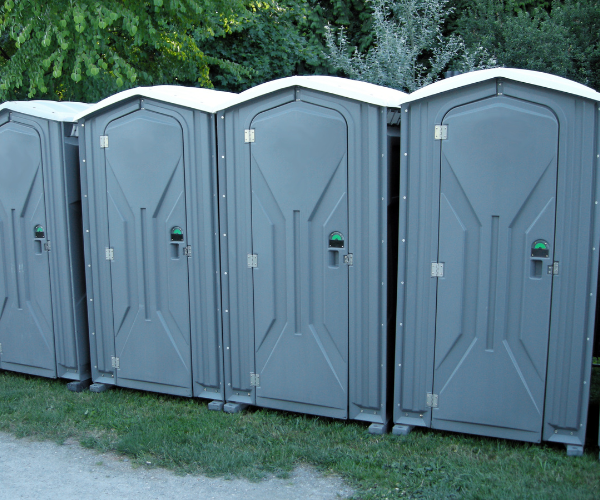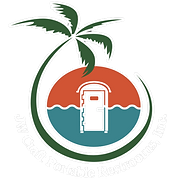Portable toilets offer numerous eco-friendly advantages, making them an attractive solution for environmental-conscious individuals and organizations. These units significantly reduce water usage compared to conventional toilets, as they rely on chemical reactions to manage waste. Each unit uses only a fraction of the water that flush toilets do, conserving hundreds of gallons annually. The closed waste system in portable toilets ensures that waste is contained and chemically treated on-site, lowering the risk of pollution and contamination to local ecosystems.Moreover, portable toilets can be set up in virtually any location with minimal disruption to the natural environment. This flexibility allows them to be placed in parks, beaches, and remote outdoor areas without requiring plumbing or infrastructure changes that could damage existing habitats. Routine servicing and professional waste management practices ensure that collected waste is handled responsibly and safely disposed of, often at dedicated facilities where proper treatment is conducted.In addition, the materials used in constructing modern portable toilets are often designed to be lightweight yet durable, contributing to their low carbon footprint in manufacturing and transport. Many components are crafted from recycled or easily recyclable materials, aligning with sustainability goals. The transportable nature of portable toilets ensures that events, construction sites, and temporary workspaces can provide adequate sanitation without permanent installations that strain local resources. Overall, choosing portable toilets exemplifies a commitment to sustainability while providing practical, hygienic, and accessible restroom facilities.

Portable Toilet Rentals in Fort Myers Beach, Florida
Call today for a free quote (239) 402-7239
Portable Toilet
Fast, Easy, & 100% Free To Get Started
Serving Over 15 Years
For more than 15 years, our portable toilet business has been a cornerstone in Fort Myers Beach, unmatched in quality and deeply rooted in the community. We pride ourselves on exceptional customer satisfaction and reliable service, specifically tailored to our local clients.
Dedicated to Quality Service
Our company ensures that every client receives top-tier service, prioritizing cleanliness, convenience, and satisfaction. We strive to exceed expectations with state-of-the-art units and meticulous maintenance, so you always have a hassle-free experience.
Fast & Reliable Delivery
We offer swift delivery of portable toilets, making sure they arrive right when you need them. Trust us to efficiently provide top-quality units that are ready to use, ensuring your events run smoothly without any delays.
Quality Portable Toilets in Fort Myers Beach
Call for a Free Quote Today
(239) 402-7239
At our portable toilet company, we pride ourselves on offering dependable and reliable services to the Fort Myers Beach community and its surrounding areas. As a locally owned business, we're committed to ensuring your events run smoothly by providing high-quality portable toilet rentals. Whether it's a construction site, a lively festival, a chic wedding, or a family party, we've got you covered with clean and functional units that cater to all your needs. Our dedication to customer satisfaction has made us a trusted name in the portable sanitation industry. With our portable toilets, you can enjoy peace of mind knowing a trusted team is behind you every step of the process. Allow us to make your next event not only successful but comfortably memorable.


Our standard porta john rental units are durable and reliable for any commercial build site, housing development, public works project, or remodel job.Features include dome lighting, grated floors, and an “In-Use” locking mechanism for privacy and comfort. Regularly maintained, inspected, and cleaned by FusionSite at your location.

Developed as an alternative to full ADA-compliant restrooms, the Liberty is a spacious, wheelchair-accessible unit that can also be promoted as a family-sized restroom. Includes a patented flat-floor system for easy wheelchair access and maneuverability.Handrails, paper holder, and rotary latch are designed for simple, intuitive end-user operation.

Portable hand washing stations are essential for keeping your work site sanitary and clean. Features hands-free foot pumps, liquid soap, and paper towels.Perfect for job sites without water hookups, these units can handle hundreds of washes between services.
We Proudly Serve
Standard Portable Toilets
Our standard portable toilets offer dependable sanitation solutions for JW Craft, Flordia.
High Rise Portable Toilets
High-rise portable toilets in Fort Myers Beach ensure convenience at elevated sites.
Restroom Trailers
For convenient upscale sanitation, our restroom trailers enhance any Fort Myers Beach event.
Roll off Dumpsters
Roll off dumpsters at JW Craft provide efficient waste management in Fort Myers Beach.
Septic Tank Cleaning
Septic tank cleaning by JW Craft in Flordia ensures systems run smoothly and efficiently.
Grease Trap Cleaning
In Fort Myers Beach, our grease trap cleaning service maintains your kitchen's hygiene effectively.
Fencing & Barricades
JW Craft offers reliable fencing & barricades service to ensure safety and structure in Flordia.
Residential Storage
Our residential storage solutions in Fort Myers Beach provide secure and accessible options.
Fort Myers Beach Portable Toilet & Event Services
Obtaining a quote and coordinating the delivery of a portable toilet has never been easier. With just a few clicks, you can connect with our team to assess your needs, ensuring a no-fuss experience tailored to your timeline and location. Our online platform allows you to swiftly access 'Get A Quote' options directly on our website, streamlining the entire process. The quote process requires minimal information: simply provide your basic contact details including your first and last name, phone number, and email. This ensures a tailored response fitting your requirements whether you're organizing a construction project or an outdoor event. As requests come in, our team promptly addresses them with speedy estimates and comprehensive service options. Trust in our streamlined processes and commitment to efficiency to make your portable toilet rental experience seamless and stress-free.

Fort Myers Beach, celebrated for its lush landscapes and vibrant community, provides an ideal backdrop for events of all kinds. Our portable toilets enhance any occasion, ensuring comfort amidst the scenic beauty that makes this location unique. Whether you're attending the lively Fort Myers Beach Pirate Festival or a small family reunion at the picturesque Bowditch Point Park, our clean, dependable units ensure a seamless experience. We take pride in serving the Fort Myers Beach area with attention to detail that reflects the community's warm hospitality. Our services are specifically designed to complement the local charm, ensuring all events maintain a touch of elegance and convenience. A day spent enjoying the area's natural wonders should be complemented with reliable facilities. Our portable toilets represent the perfect solution for outdoor gatherings, ensuring guests can fully appreciate their surroundings without inconvenience. Our strong local presence and commitment to excellence make us the top choice for portable toilet rentals, reinforcing the sense of community and dedication to quality service Fort Myers Beach is known for.
Our portable toilet company stands out because of our strong ties to the Fort Myers Beach community. Years of exemplary service have equipped us with a keen understanding of local needs, enabling us to tailor each client's experience.Why Choose Us: Our team of seasoned professionals delivers unparalleled service excellence. We are committed to demonstrating why we should be your top choice for all portable sanitation needs, offering exceptional customer service, timely delivery, and immaculate units.Leverage our advanced technology for an effortless booking and rental experience, supported by a team committed to exceeding expectations. Whether for family gatherings or corporate events, we deliver the reliability and care that Fort Myers Beach residents rightfully expect.
Our company prides itself on fast, dependable services tailored to your immediate needs in Fort Myers Beach. Understanding the importance of timely responses, we ensure your portable toilet units are delivered swiftly and efficiently.Reliability & Speed: Our dedicated team guarantees each unit's cleanliness and functionality, making sure they're ready for use the moment they arrive. Your events run seamlessly when supported by our efficient delivery methods and focused customer service.Appreciate a service that prioritizes your schedule, offering peace of mind with quick turnarounds and professional support every step of the way. Our commitment to fast delivery ensures your portable sanitation needs are met without compromise.
Discover Our Portable Toilets in Fort Myers Beach
Renting a portable toilet in Fort Myers Beach is a straightforward process designed for convenience and efficiency. Begin by visiting our website where you'll find options to 'Get A Quote.' These forms, available at both the top and bottom of the page, are easy to locate and navigate. Simply click on the 'Get A Quote' button to open the form which asks for your first name, last name, phone number, and email address.When you've completed these sections, submit the form to initiate your request. This information allows our team to quickly understand your needs and prepare a tailored response that fits your specific event or project. Once the request is received, we prioritize developing a prompt estimate and outline of services, offering a variety of unit options to best suit your usage and budget requirements.Over the next few steps, our customer service representatives will reach out to finalize details such as delivery dates, unit specifications, and any additional requirements you might have. The transparency of our process ensures there are no surprises, and you're kept informed every step of the way.By using our online services and expert team support, renting a portable toilet has never been easier. Trust that our system and friendly representatives will guide you through the process smoothly, ensuring you receive quality sanitation solutions exactly when and where you need them.
Our company strives to provide efficient and reliable delivery services for all portable toilet orders. In general, the typical delivery timeframe depends on the complexity and size of your order, as well as current availability and event proximity. However, we endeavor to deliver all units within 24 to 48 hours from the time of request confirmation.Once your booking is confirmed, our logistics team swiftly arranges the dispatch of portable toilets, aiming to align delivery times with your individual schedule preferences and event requirements. For larger or specialized orders, advance notice can aid in securing a specific delivery time that suits your needs.In the case of urgent requests, our team makes every effort to accommodate shorter lead times, ensuring that your events remain uninterrupted and your guests are well-provided-for. Exceptional situations or large-scale events may require a bespoke arrangement, but rest assured that our commitment to punctuality and customer satisfaction remains our priority.We maintain clear communication throughout the delivery process, updating you on expected arrival dates and times, and confirming all details prior to dispatch. By ensuring attention to each order's logistical details, we consistently exceed customer expectations for service efficiency and reliability.
Yes, our company is equipped to service any type of event or construction services, providing comprehensive solutions tailored to your needs. Whether you are organizing a vibrant festival, hosting a large sporting event, planning an elegant wedding, setting up a corporate event, or gathering for family reunions and other special occasions, we are here to assist. Our range of high-quality products includes luxury restroom trailers, standard porta potties, roll off dumpsters, holding tanks, ADA-compliant units, portable sinks, and hand sanitizer stations to support varied event requirements.Understanding the diverse needs of our clientele, we ensure all units are meticulously maintained and sanitized, providing guests with reliable and hygienic facilities. Our experience in servicing different events allows for precise planning and execution, ensuring seamless logistics and support.In addition to event services, we cater to construction sites with durable portable toilets designed to withstand the rigorous conditions typical in construction environments. With a focus on client satisfaction, our team is dedicated to delivering exceptional service, from initial consultations to final cleanups, making us your go-to provider for portable sanitation needs at any occasion.

